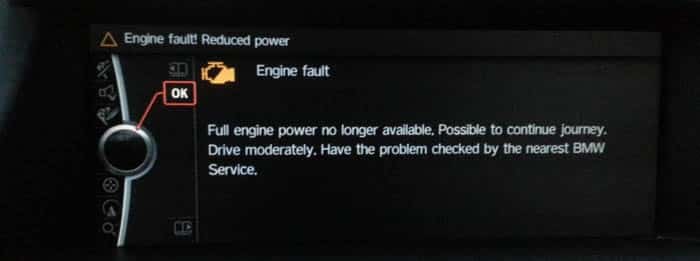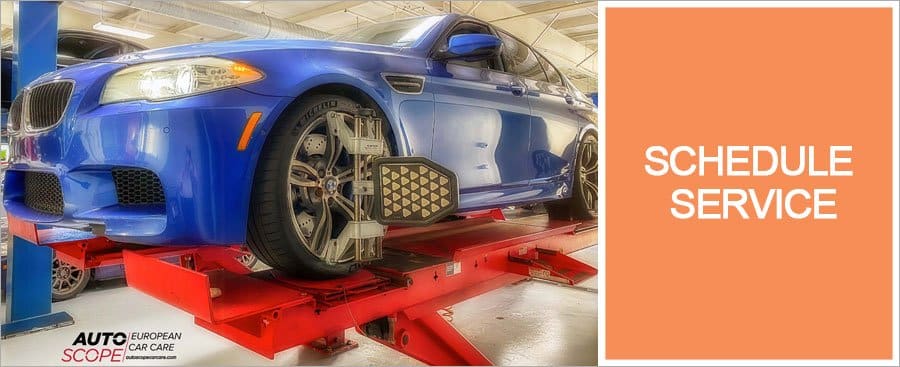Many BMW owners gravitated towards the F30 generation of the BMW 3 Series because of the models’ turbocharged engines and electric power steering, giving BMW a heightened experience behind the wheel. The F30 BMW, which is a sedan, is often the namesake for references to the entire BMW 3 Series, which is the focus of the fault code causes and fixes below.
But, as with any car, some issues can arise once you’ve had your vehicle on the road for thousands of miles. When you notice a change in the functionality of your vehicle, you may bring out the OBD sensor to find out the fault code associated with the issue your car may be facing. But what does every one of these codes mean? Below, we’ll delve into the most common fault codes, their causes, and how these fault codes can be fixed.
Common Fault Codes in F30 BMWs
P1017 Valvetronic Eccentric Shaft Sensor Plausibility
The ABS pump, which is responsible for safe braking pressure and prevents your wheels from locking from excessive braking. This vital function within your F30 BMW can often present itself with some issues. If there is something wrong with your ABS/DSC pump, the fault codes that will show on your OBD sensor would either be ‘5DF0-Hydraulic unit pump motor’ or ‘5DF1-Hydraulic unit pump motor connector faulty.’
Common causes and symptoms: Causes for this fault code include a faulty valvetronic eccentric shaft sensor, a missing reluctor on the valvetronic eccentric shaft sensor or poor electrical connections in the eccentric shaft sensor. The noticeable warning for this fault would be an illuminated service engine light.
How it’s fixed: Typically, the fix involves the careful assessment of a qualified mechanic and service where the affected and damaged parts are replaced. Through a third-party mechanic, the rates for replacement and service are typically much lower than that of a dealership shop.
‘2D42 Valvetronic, Adjustment Range: Stop Not Learned’
This fault code indicates that your BMW’s valvetronic system eccentric shaft is no longer working properly as a result of wear and tear in certain parts of the shaft.
Common causes and symptoms: Wear and tear, as well as added mileage, can cause the valvetronic eccentric shaft to experience wear, causing the shaft to bind. In this case, the increased resistance in the shaft is what triggers the fault code. The noticeable warning for this would be abnormal throttle or rough running, but typically no engine light will appear.
How it’s fixed: When you bring your BMW in for service as a result of this fault code, our team at AutoScope will check wires, plug connections, vehicle voltage and limit positions on the eccentric shaft. After this detailed assessment, our team will recommend the best course of action to get you out on the road again.
‘P1030 Valvetronic Monitoring Sluggish Movement’
This fault code, when presented in your F30 BMW, indicates that your vehicle’s normal fuel efficiency and reduced emissions are not functioning properly as a result of an issue with the vehicle’s valvetronic system.
Common causes and symptoms: Causes for this fault code include a faulty valvetronic motor, the eccentric motor harness is either open or shorted, or there is a poor electrical connection within the motor circuit. The noticeable warning for this fault would be a check engine warning light.
How it’s fixed: When you notice this fault code, bring your vehicle into AutoScope where we can assess exactly what needs to be repaired on your vehicle in relation to your valvetronic eccentric shaft failure.
‘When it Won’t Start, No Fault Code Appears, or Combustion or Injector codes appear’
If your F30 BMW is experiencing issues starting or is intermittently not starting at all, you may have been quick to diagnose the issue but came back with one of many fault codes, including 30BB – Injector circuit failure 4-6 or DME internal fault or 29CC – Combustion misfire on several cylinders.
Common causes and symptoms: This is often due to faulty equipment, poor upkeep or excessive wear-and-tear on the BMW mechanics. Common symptoms that you will notice in this case include engine light is on, your BMW won’t start, runs rough, or an engine misfire.
How it’s fixed: An ECU replacement is a common and more cost-effective fix, as opposed to replacing the entire engine management system. A qualified and experienced BMW mechanic will be able to determine the right method of repair for your issue.
Experienced BMW Mechanics for Effortless BMW Repair
Fault codes don’t mean you should fall out of love with your BMW. When you notice a difference in your BMW’s functionality and find a fault code as a result of your testing, you can bring in your vehicle for full service and have the issue fixed quickly. With AutoScope’s highly trained team of European vehicle mechanics, fault codes can just be a minor incident in the lifetime of your vehicle. If you have questions or want to book a service or repair, call (214) 462-7863 today.
Schedule your personalized appointment today! Contact us online here.


